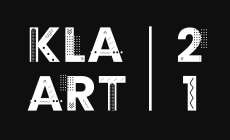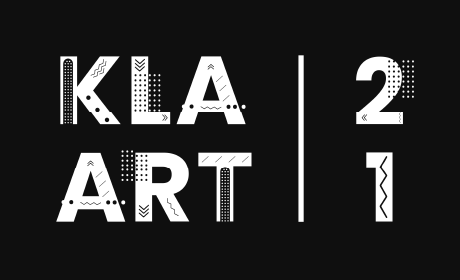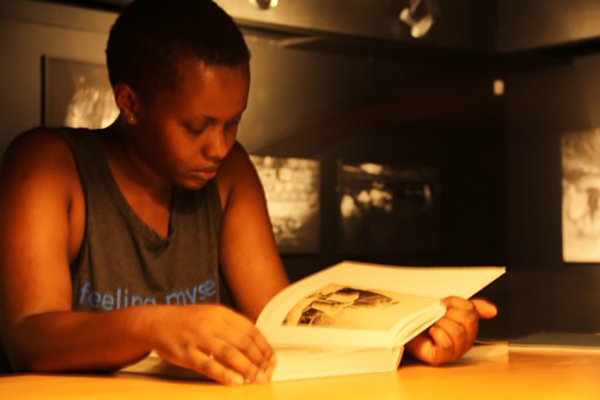
Liz Kobusinge, Lugar a Dudas — Colombia
Let’s start in a dream. I am halfway through dinner on a terrace, buzz deep into a couple of cocktails and the promise that I will be home in less than a week when I first see her. I say ‘first’, but I think I mean finally. If this were a movie all sound would fade as the camera pans in slow motion to her face. I write to my sisters later that I met ‘a woman of dreams’ and it feels like I am in one for the rest of that evening as we steal glances at each other (well, I steal while she takes me in with a smile). This memory is shiny with flashes of red and gold. I am hesitant to describe her more because the specifics become such broad strokes that I am teetering between Cali and Macondo.
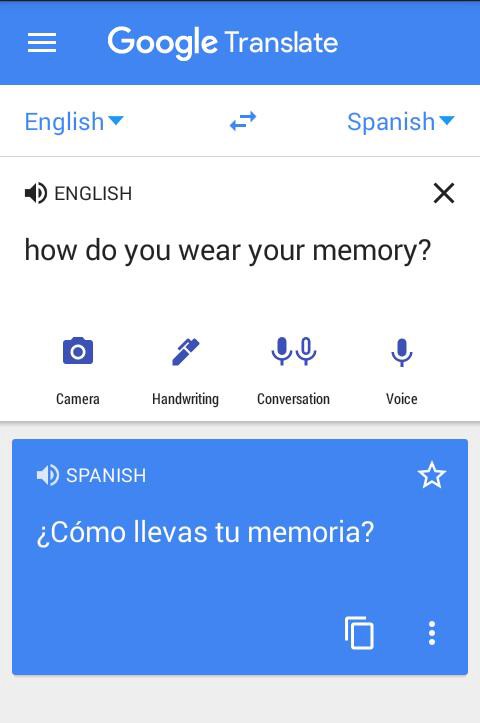
Cali 2020 began in Kampala 2019 when I said yes to everything, pulling on desires that wound me all the way outside any comfort zone I have ever nested in. I wrote my obsession with my mother and memory into a proposal on research into Palenque culture as an aspect of Afro-Colombian lineage and heritage. I arrived at Lugar a Dudas, an independent art space in Cali, with the intention of visiting San Basilio de Palenque, a village in Northern Colombia considered to be the first free African town in the Americas. It was established by Africans who escaped enslavement by slave traders from Spain. The short story is I failed. The longer story is I was confronted with the limitations that budgets, time and geography put on my research. I turned to libraries to source information but soon found that although Colombia has one of the largest populations of African descended people, they are under-represented in written histories available in public record. I also had to navigate translation and the lag it creates, depending on technology and other people to interpret text and context. Documenting my feelings at the time in my journal, I wrote,
I came to Cali with a very broad idea of what I would find/what I wanted to find. Nothing found me and it has mostly been too loud, too slow, too much, too little. My tongue won’t curl around Spanish, and my ears hesitate to embrace it. The thing I felt like most in Cali was an outsider.with a very broad idea
Looking back I think ‘outsider’ was an odd way to describe the reality. What I was experiencing was a feeling of loss of ‘power’ while navigating a different context of linguistic imperialism. Cali and Buenaventura have quite a large Afro-Colombian population, so I did not ‘look’ different, but became an ‘other’ every time I spoke. There are obvious questions here of the assumption of understanding that English speakers (even from the Global South) have while out in the world. It was a frustrating feeling for me, but also a point of shame to acknowledge the ease with which I assumed that I would enter this Afro-Latin culture through English.
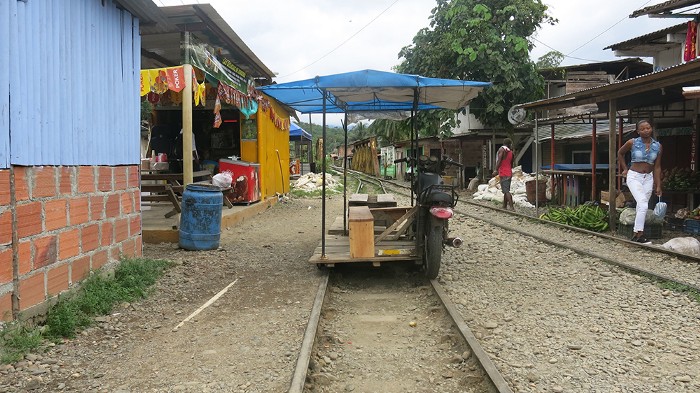
Reader, frankly put, I pretty much gave up trying to communicate. I gave up trying to collect ‘material’. I gave up trying to condense Afro-Colombia into paper. Luckily the universe placed professional and personal connections in my path so that I began to feel community despite what I saw as a serious shortcoming on my part. As these relationships grew I was able to experience first Cali, then the Pacific coast in a more dynamic way. I went to mass led by a Kenyan missionary in Cali, visited Museo la Tertulia with two different sets of people, and therefore different perspectives on the art and context, learned a body cleansing recipe (passed down three generations) from a woman selling herbs in a market in Buenaventura, took a brujita ride into the San Cipriano natural reserve and tubed down a river in the relative silence of untranslation.
Receiving care in this way led to the desire to structure my open studio as a performance of intimacy. Photos and video had become integral to how I documented and, therefore, communicated these experiences in the gap that spoken/written language had left, which is why I shared a sort of video tribute to two significant relationships I had formed in this time.
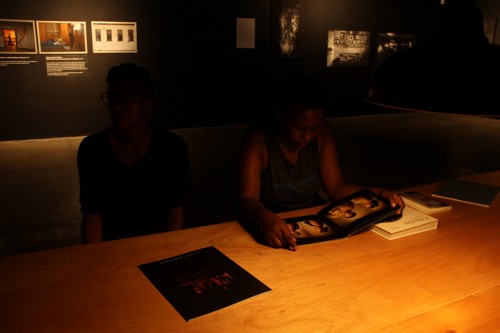
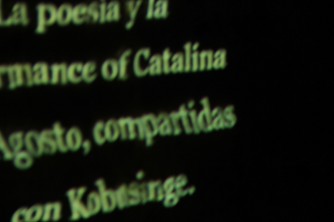
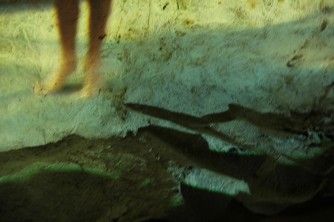
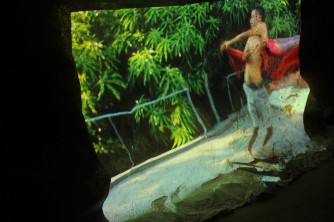
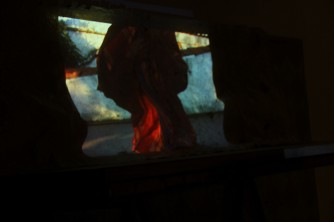
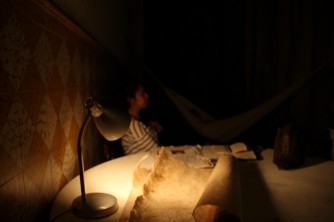
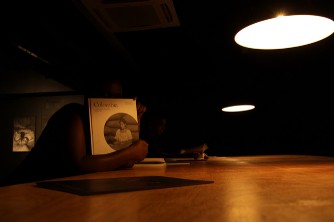
Agosto, Catalina and I had spent a day together walking in Cali, visiting a museum, sharing stories and our art. I projected an edit of Agosto dancing on a rooftop in my mother’s suuka (flashes of red and gold) onto barkcloth paper I had made in Kampala, with Catalina’s poem forming the soundtrack.
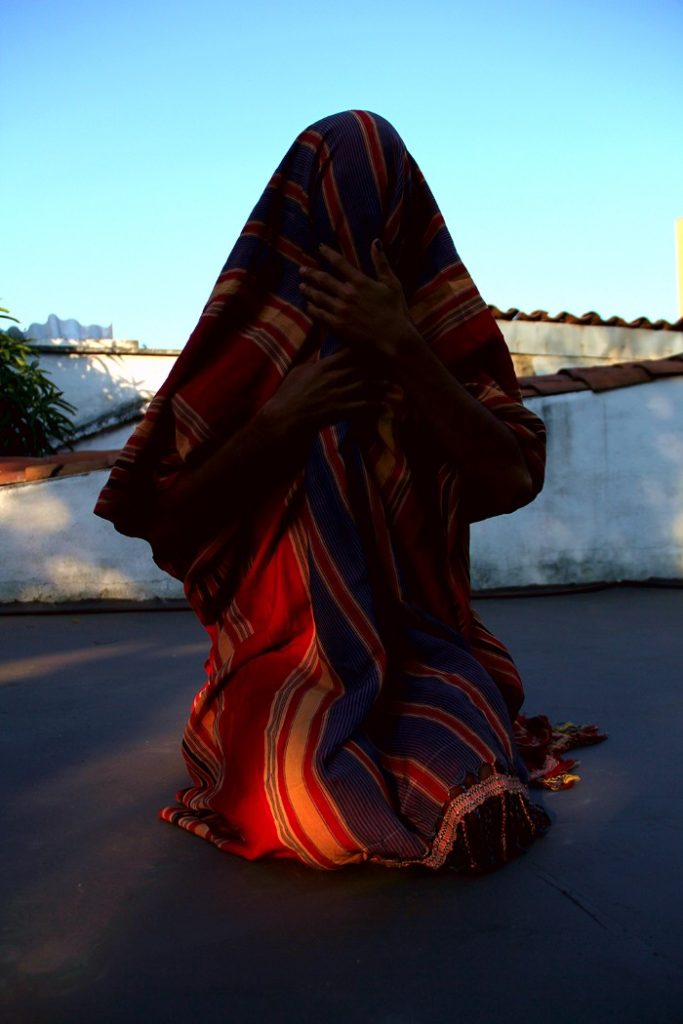
This played on a loop as I spoke with different people, at one point finding myself seated on the floor in a circle of mostly women, sharing different approaches to memory as material in art-making. I chose not to share the English translation of the poem as a way to reject my expectations of access.
There is no tidy ending here. I went in with some rigid expectations and was fortunate to actually experience life outside of them. I still have questions, maybe even more than I went with. I am trying to read theories of translation, access, and community engagement with material. I want to explore information gathering as a form of collective technology, and link that to how we configure memory and space. Mostly I am making paper again because I finally can.
